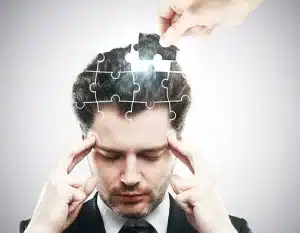Anger is socially misunderstood, people do not have proper information first of how to deal with it and secondly that we need it, it is a primary emotion that is woven into our biology.
Since childhood we are taught that it is wrong to be angry, that anger is bad in some way, not allowed and punishable, our caretakers taught us that love is when we are nice, polite and obedient. When we got angry we were told we have an ugly look, that we are moody, that we should go to our room till we have calmed down and are normal again.
So we learned it is undesirable to express or feel anger or any other strong emotions and we have to change it immediately, at all cost.
Or maybe in your home it was the opposite and everyone raised their voices constantly. The way to communicate was through violent emotional expressions, or there were punishments when you shouted, this too takes its toll, children absorb that volatile energy, it becomes the familiar that you replicate in life. Your reactions may not even be your own, it is something you took on by observing, experiencing and absorbing energies you were around.
Children very often have to deal with angry outbursts of parents and other adults and at the same time are completely banned from expressing anger, disagreement, rebellion. Some will follow along and stifle their voice and their authenticity by conforming to rules mostly out of fear of being rejected, unloved, not accepted. Others will resist, fight against their parents authority or imposed control, they will be disobedient, stubborn, labelled as difficult, naughty and exhibit rage and express their anger with tantrums. This is another way to be noticed, heard, acknowledged and to survive.
There are also those who are from homes where no one argued, maybe everything was brushed under the carpet and feelings weren’t expressed much, they grow up with a sense of superiority with a better then others mentality, very surprised to see people arguing with each other, they are focused on intellect, rational thinking but can be more out of touch with their feelings and disconnected from body then they realise.
This is also why some people react with fear at someone who is more emotional and expressive. They can’t cope with it because in their world that is not allowed, and also they don’t know how to deal with strong emotions.
Whatever the case was for you, we all carry subconscious beliefs, and emotional energies that influence our thoughts, and behaviours. Now as adults we have to deal with these patterns ourselves but we don’t have the map. Nobody showed us the “how to deal with emotions manual” so we resort to the familiar, either suppress, stop from feeling or it is over expressed as aggression, shouting, feeling out of control.
How do you feel when you are rejected, criticised, in some way? How do you react to an injustice? Do you respond straight away with an outburst, counter attack or retreat and let the anger build up behind the scenes? Is it diffused within you or grows into resentment?
In fact we all experience anger and we all have the ability to feel and experience it, but we differ in what we do with this anger.
How do you experience anger?
Some people experience anger as a deep sadness and retreat into powerlessness while for others it manifests in the form of aggression, accompanied by expressive uncontrollable outbursts. Anger can manifest in a variety of ways and is not necessarily visible at first glance.
Sometimes we are even afraid of how powerful this emotional energy can be. Maybe you had a situation where you got terrified because of how you reacted? you had so much rage that came out of you that you didn’t recognise yourself? Or it reminded you of one of your parents who had similar outbursts, it brought up that terror you felt when you were so small and you don’t want to feel that ever again so you block anger.
Anger is the emotion that we usually fear the most, because it is associated with aggression, with inflicting wounds – hence we often suppress it in ourselves.
Especially in society it is an emotion that is undesirable and unacceptable, seen as negative, bad, we look at people that express emotions as emotionally unstable, frantic, crazy
It really is disapproved of and so we do not always allow ourselves to fully feel it, express it and reveal it whether to ourselves or externally. After all, our cultural norms say that “a person must behave calmly” and that you can not get carried away by emotions. That is why we learn from an early age not to show anger and therefore not to feel it.
Moreover, we feel pressure to remain in complete control in fear of being regarded as unstable emotionally or crazy, moody, there are many labels that can be thrown around, and nobody wants to feel like there is something wrong with them so best to keep it all in, and slowly with time this person becomes more and more cut of from feeling a whole spectrum of emotions, when we block ourselves off from accepting and integrating uncomfortable feelings then at the same time we block access to fully experiencing higher states of joy, peace, excitement.
Guess what? You have the right to be angry. Until we have access to anger we are not able to stand in strong boundaries, to be outraged at injustices that happen to us. Until we connect with that anger and channel it properly others can walk all over us and we are not able to protect ourselves or meet our needs.
Firstly, accept that you have anger, accept that you feel it because it is a part of our human experience. Already by approaching yourself with compassion and understanding you begin to lessen the hold of intense emotions.
I recommend to you my course on anger, in which I teach techniques on managing anger and letting it go without needing to endlessly punch bags, scream into pillows or chop wood in a raging fit. Yes sometimes this can help when emotions are intense but it is a short term solution. Click her to find out more:
If we learn to express anger without fear of feeling it, we will have no need to attack or accuse. Then showing it will become a source of energy for action, it will bring authenticity, strength because intimacy and passion die when people stop expressing their true feelings. By suppressing anger, you deprive yourself of power and assume the role of the victim.
Summing up, anger in itself is not bad or wrong, it is just a message, it allows us to react to information, perhaps a boundary has been crossed, there is an unmet need, or a threat of some kind. Whether it is bad or good is determined by how we react to that anger, that is, our very behaviour in response to anger. For more information of how you can work with me to release emotions and create a more balanced life contact me.





